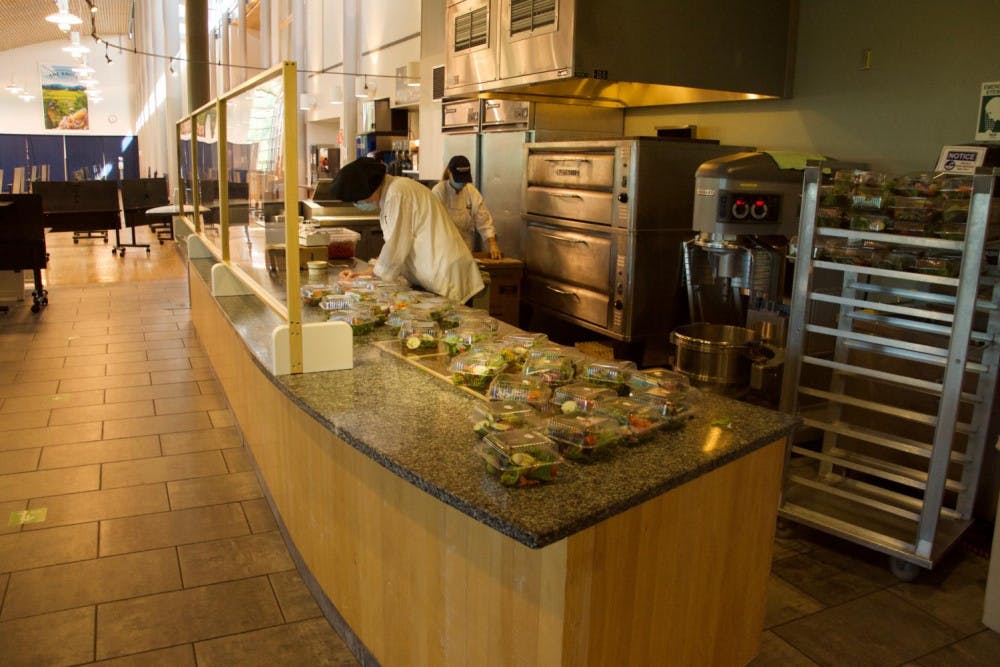Every Middlebury student who arrived on campus last week found a bag stuffed with snacks, beverages and non-perishable treats in their room. These bags, along with the packaged meals delivered during the first few days of campus quarantine, were the product of the hard work of Middlebury’s dining staff — some of whom worked overtime or more than seven days in a row — to feed students during their arrival room quarantine.
Staff were tasked with cooking food, assembling bags and boxes in Nelson Recreation Center, loading food onto trucks and delivering the meals to dorms.
“For us as cooks and service employees, it was just a matter of showing up when and where we were told to,” Atwater Cook Patricia McCaffrey said. “I can only liken it to a military operation on a certain level. We were broken down into small teams, likely with people you haven’t worked with before, and given a task to accomplish.”
McCaffrey worked nine days in a row and worked overtime on three of those days. Ross Cook Starrin Ricupero worked 12 days in a row, with about half of them exceeding the usual eight-hour workday. But the dining staff had anticipated these long hours.
“They let us know in advance that we might be having a long stretch and that we might be having a few long days that are more than eight hours,” Ricupero said.
Staff members received overtime pay, except certain salaried managers and head chefs.
The preparation for dining started before the break, according to Dan Detora, executive director of food service operations. Managers and head chefs completed the initial menu planning several weeks before students arrived and calculated the quantity of food and containers.
Changes from last semester’s preparations increased the work for staff this spring. In the fall, the “swag bags” were not offered, students were tasked with carrying their own snack bags from the testing center and groups of students who arrived to campus early — such as ResLife staff and MiddView leaders — helped with meal delivery. Except for a small number of students approved to be on campus during J-Term, all students returning for the spring term arrived during a two-day window, so no students were available for delivery assistance.
Staff began assembling the snack bags on Monday, Feb. 15 in the Nelson Center. The following days were designated for packing and delivering bags and 2.5-gallon jugs of water to each dorm prior to students' arrival. Beginning Feb. 19, work shifted to packaging meals which students received in quarantine until Wednesday Feb. 24.
Dietary restrictions and last minute adjustments made delivering meals challenging.
“The big issue with delivering the meals is the number of hands and ears information has to go through,” Atwater Cook Gabriel Austin said. “The constant last minute changes to dietary needs or room changes made things more difficult.”
As students finished room quarantine, staff immediately returned to the dining halls to prepare for Feb. 25, the day dining halls opened and meals were no longer delivered. The quick turn-around resulted in many consecutive work days for the dining staff.
“It was a very busy week and the project took a great amount of work,” McCaffrey said. “But at the end of the day, we made it through.”

Roya Touran '23.5 is a news editor.




